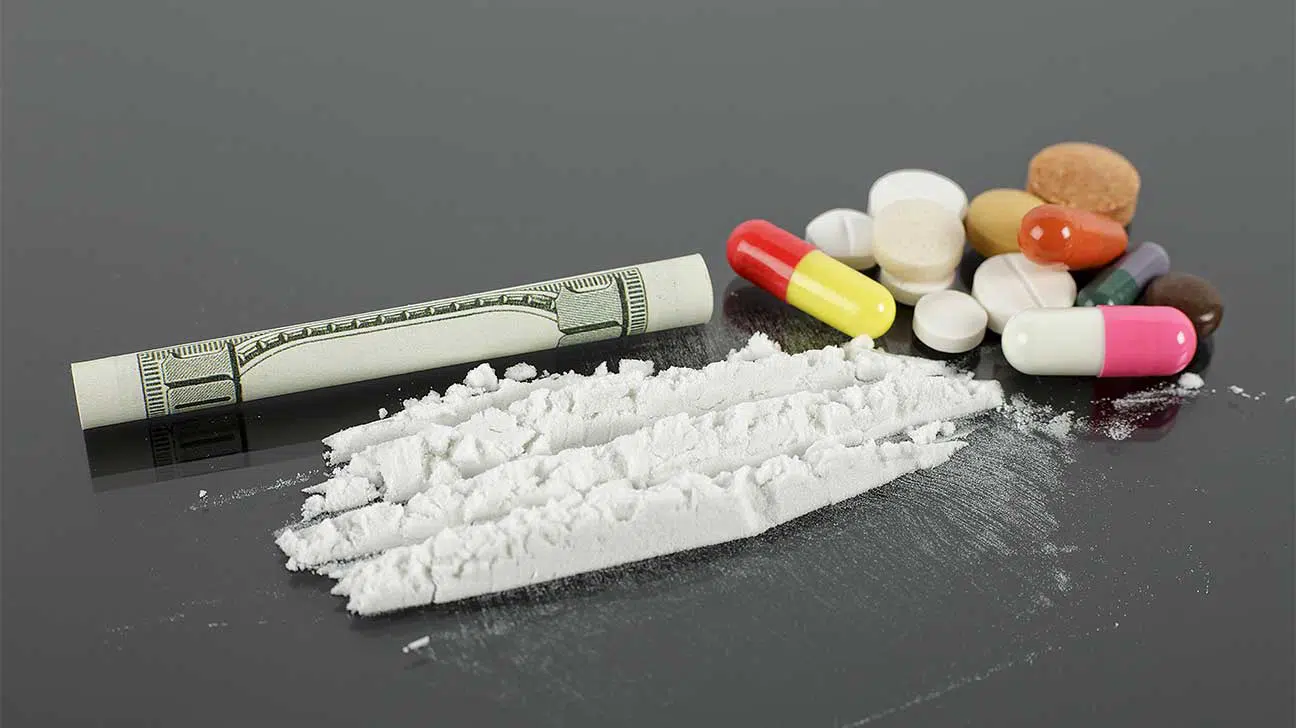
People that mix illegal stimulants like cocaine with prescription “downers” like Valium may experience long-term heart complications, addiction, and overdose that may result in death.
Cocaine affects dopamine pathways that make it highly addictive and can produce unpleasant “comedown” effects. Often, people take cocaine with other substances that can extend or alter the drug’s effects.
Valium (diazepam) is a benzodiazepine prescribed to treat symptoms of panic disorders and anxiety. It produces mild euphoria and relaxation when taken.
Whether abused or used according to medical advice, people that take Valium can develop drug dependence and tolerance.
Learn more about mixing benzodiazepines with cocaine
Why Do People Mix Cocaine And Valium?
People generally mix benzodiazepines like Valium to mitigate uncomfortable “comedown” symptoms that include anxiety after the cocaine high has worn off.
The calm that accompanies Valium use can also take the “edge” off prolonged cocaine binges where a person may want to calm down or even out without the perceived negative effects.
However, because cocaine and Valium work in opposing ways, there is a greater risk of an accidental overdose on either drug, since one drug’s effects may be masked by the other.
Combined Effects Of Cocaine And Valium
Because cocaine is an illegal drug, there is never an assurance of quality or purity with this drug. Combined with a sedative like Valium, this mixture can create unpredictable results.
Valium generally causes effects like:
- drowsiness
- decreased energy
- lowered anxiety
- lowered heart rate
A cocaine high gives a person effects like:
- euphoria
- paranoia
- anxiety
- high energy
- increased heart rate
These very different effects cannot be accurately predicted. However, most people that take cocaine with a benzodiazepine drug do it to ease anxiety resulting from cocaine use.
Risks Of Mixing Cocaine With Valium
When potent drugs are abused, they may create adverse reactions in both the short term and long term.
The risks of abusing cocaine and Valium together involve a high possibility of addiction, permanent physical and psychological damage, and overdose death.
Risk Of Overdose Death
Both cocaine and Valium affect the central nervous system (CNS). Valium specifically slows down heart and lung function, as well as motor function and executive function.
When too much Valium is taken, a person may experience:
- coma
- confusion
- weak heartbeat
- low blood pressure
- slowed breathing
- tremors
- slurred speech
- lethargy
- death
A cocaine overdose can include:
- seizures
- high body temperature
- chest pain
- rapid or labored breathing
- heart arrhythmia
- heart dysrhythmia
- high blood pressure
The range of overdose symptoms may result in heart attack, stroke, coma, respiratory depression, and death from the combination of Valium and cocaine.
Long-Term Mental Health And Neurological Damage
Extended abuse of cocaine or Valium individually has damaging long-term effects on cognition and mental health.
This brain damage can result from the lack of oxygen that results from Valium overdose or from physiological changes in the brain due to cocaine abuse.
Lasting neurological and psychological damage includes:
- memory loss
- lasting anxiety
- depression
- psychosis
- confusion
Long-Term Physical Damage
Valium and cocaine place stress on the body’s vital systems in opposing ways. The cardiovascular system is especially affected by this type of polysubstance abuse.
The effects from persistent cocaine and Valium abuse can result in damage to major systems and cause:
- seizures
- permanent heart damage
- stroke
- low blood pressure
- shortness of breath
- kidney failure
- tremors
- poor coordination
Developing A Cocaine Or Valium Addiction
Cocaine and Valium are habit-forming on their own. The dopamine reaction that both drugs facilitate in the brain gives a strong reward reinforcement.
Both drugs can be addictive, resulting in persistent drug cravings, and Valium can cause physical dependence.
A person that is already addicted to cocaine and uses Valium to ease negative effects may become dependent on the benzodiazepine to feel “normal”.
General feelings of anxiety, depression, sweating, discontent, and cravings may occur as a result of polydrug dependence.
Getting Help For Polysubstance Abuse
Cocaine and benzodiazepine abuse carry a high potential for addiction and accidental overdose. If you or a loved one are using drugs on a regular basis, don’t wait to seek help.
Call us today and a treatment specialist will go over options on a case-by-case basis. Generally, inpatient treatment is useful for detoxification and early-stage therapies.
Both inpatient and outpatient rehab facilities can provide safe environments for recovery and continued therapy to help maintain sober living.
A life without substance abuse is possible. Call now to get started.
Addiction Resource aims to provide only the most current, accurate information in regards to addiction and addiction treatment, which means we only reference the most credible sources available.
These include peer-reviewed journals, government entities and academic institutions, and leaders in addiction healthcare and advocacy. Learn more about how we safeguard our content by viewing our editorial policy.
- American Heart Association — The effects of acute and chronic cocaine use on the heart
https://www.ahajournals.org/doi/pdf/10.1161/01.CIR.85.2.407 - Medscape – Benzodiazepine Toxicity
https://emedicine.medscape.com/article/813255-overview - Medscape — Cocaine Toxicity
https://emedicine.medscape.com/article/813959-overview - Medscape — Valium, Diastat (diazepam)
https://reference.medscape.com/drug/valium-diastat-diazepam-342902 - Thomas Jefferson University — Cocaine Effects on Norepinephrine in the Amygdala
https://www.jefferson.edu/academics/colleges-schools-institutes/skmc/departments/neurosurgery/research/cocaine-effects-norepinephrine-mygdala.html - U.S. National Library of Medicine: MedlinePlus — Cocaine intoxication
https://medlineplus.gov/ency/article/000946.htm


